
Bluesky and Mastodon are two social media networks with an aim to provide a decentralized platform for users.
As microblogging platforms, they also wanted to pitch themselves as a Twitter alternative (primarily) when they started.
But, have they succeeded in their goals? What do they offer differently? What more do they have in common? And, should you consider using them?
Here, I shall compare Bluesky and Mastodon to give you all those answers.
Origins
Bluesky started as a team to build an open and decentralized standard for social media in 2019. And, Jack Dorsey (Co-founder of Twitter) at the time wanted their platform to be the first client utilizing the protocol.
Of course, we all know what happened after that — Elon Musk took over Twitter, and now it's called X.
The plan for an open standard for X (formerly known as Twitter) vanished into thin air.
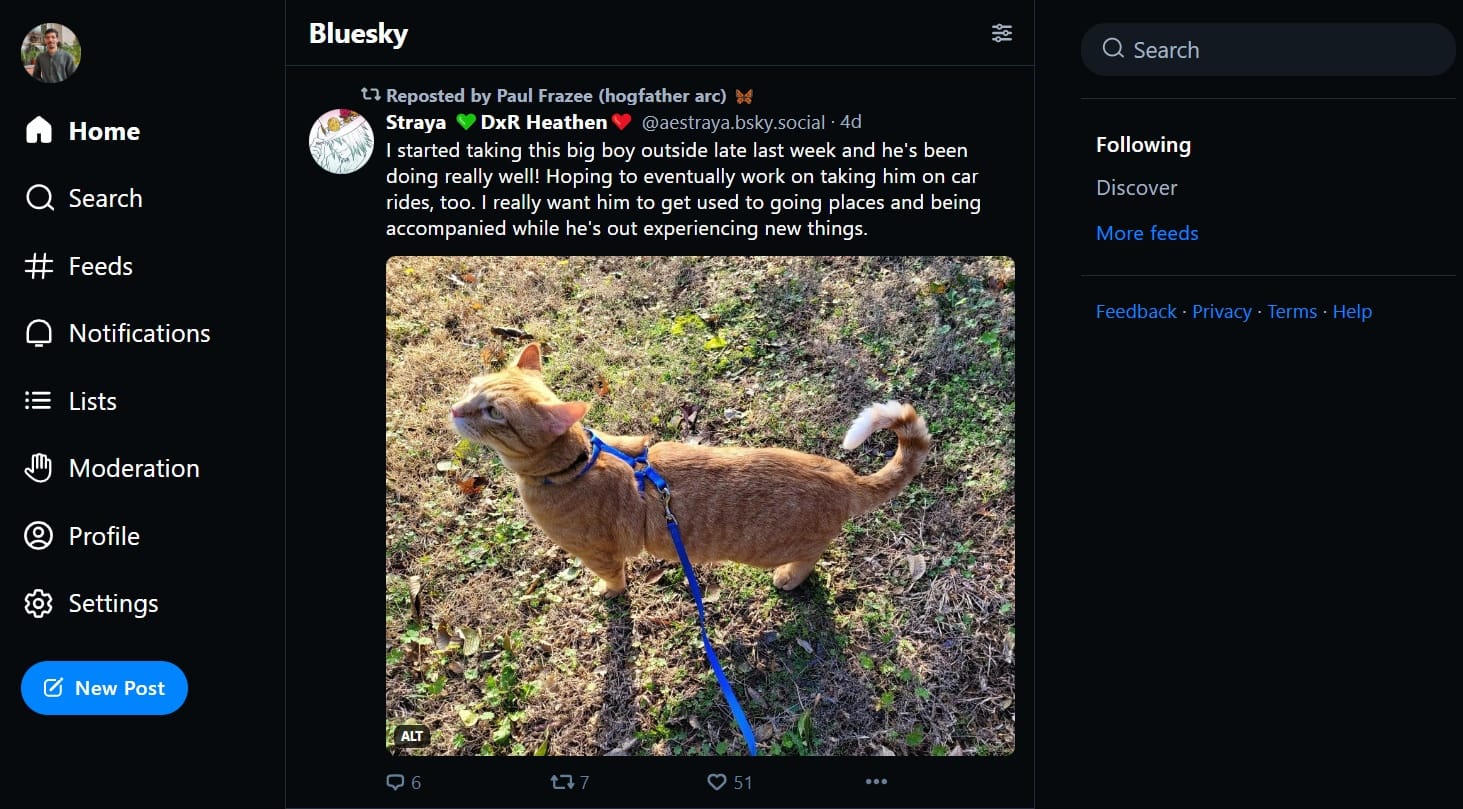
Since 2021, Bluesky is an independent company backed by Jack Dorsey.
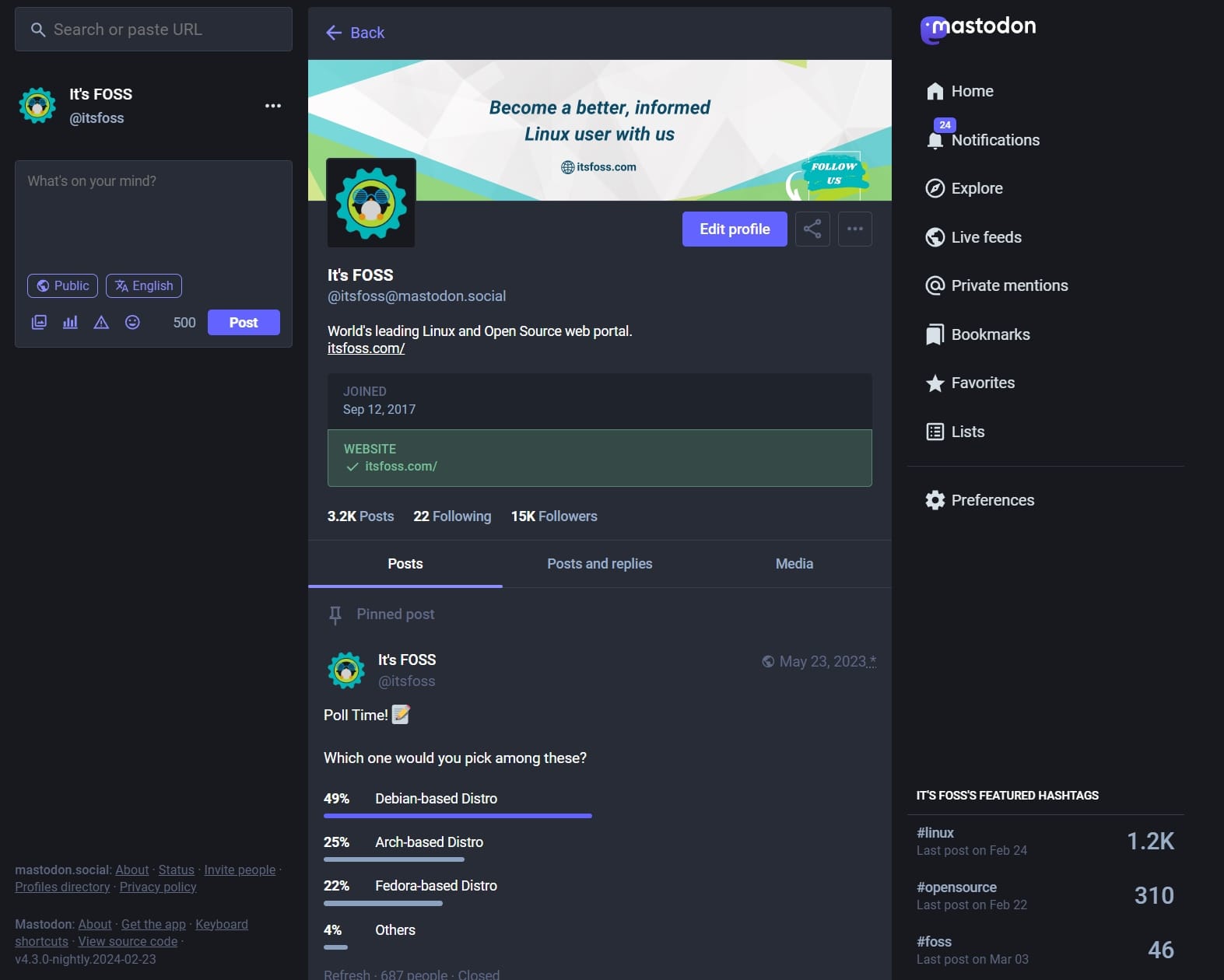
Mastodon launched as a decentralized microblogging platform by Eugen Rochko, back in 2016. Initially, it was more of a hit-and-miss, trying to mimic Twitter in some form (like posts were called "Toots").
Later in 2022, amidst the Twitter chaos, it got the spotlight to help the platform grow, and evolve faster than ever before.
The Technology
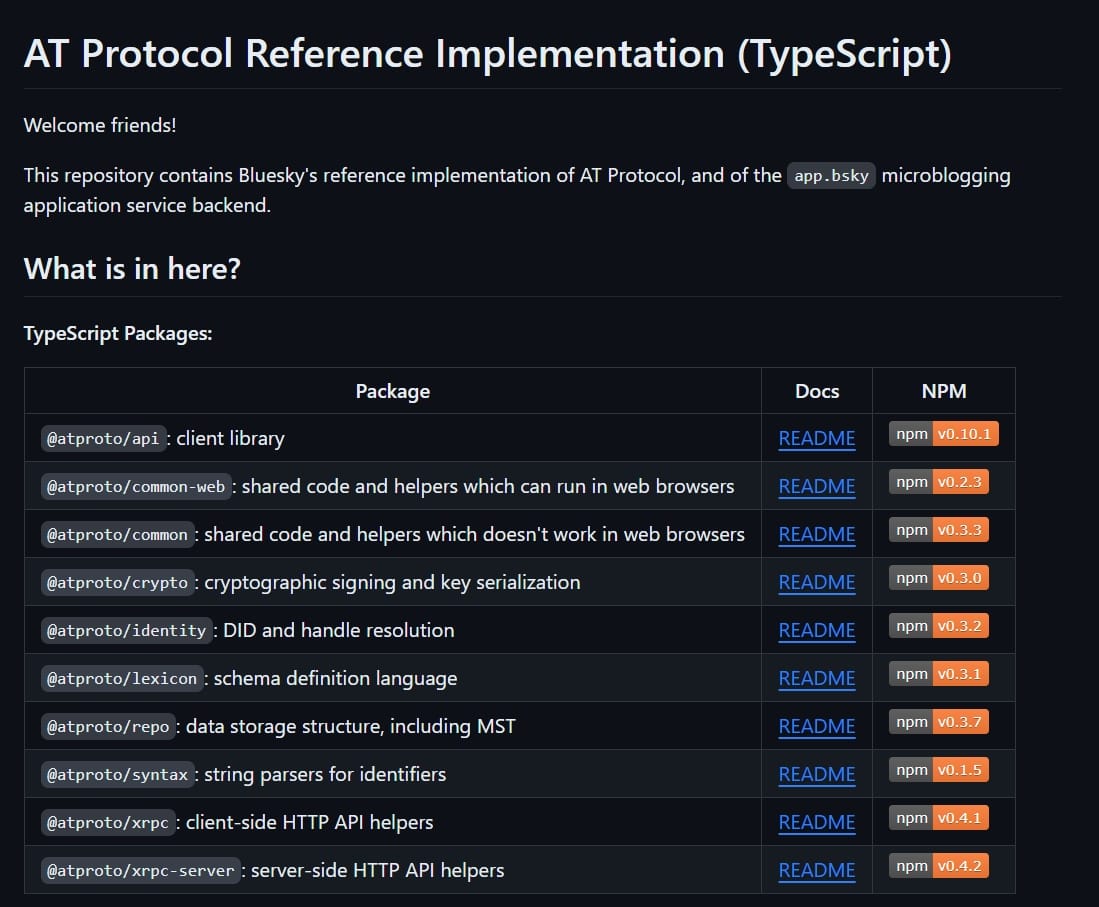
Bluesky is an open-source client app built on top of an open, AT Protocol — a federated protocol to help anyone build an open social media network.
The client and the protocol are built by the same Bluesky team.
The protocol wants social media networks built on top of it to behave like the traditional times, where anyone could use RSS to subscribe to blogs.
However, unlike having a traditional centralized authority, the AT protocol provides you with a federated network where you can easily port your accounts.
Yes, you heard that right 🤯
One of the unique traits of Bluesky's protocol is to give you the ability to migrate your social account to any other social media network utilizing the same protocol.
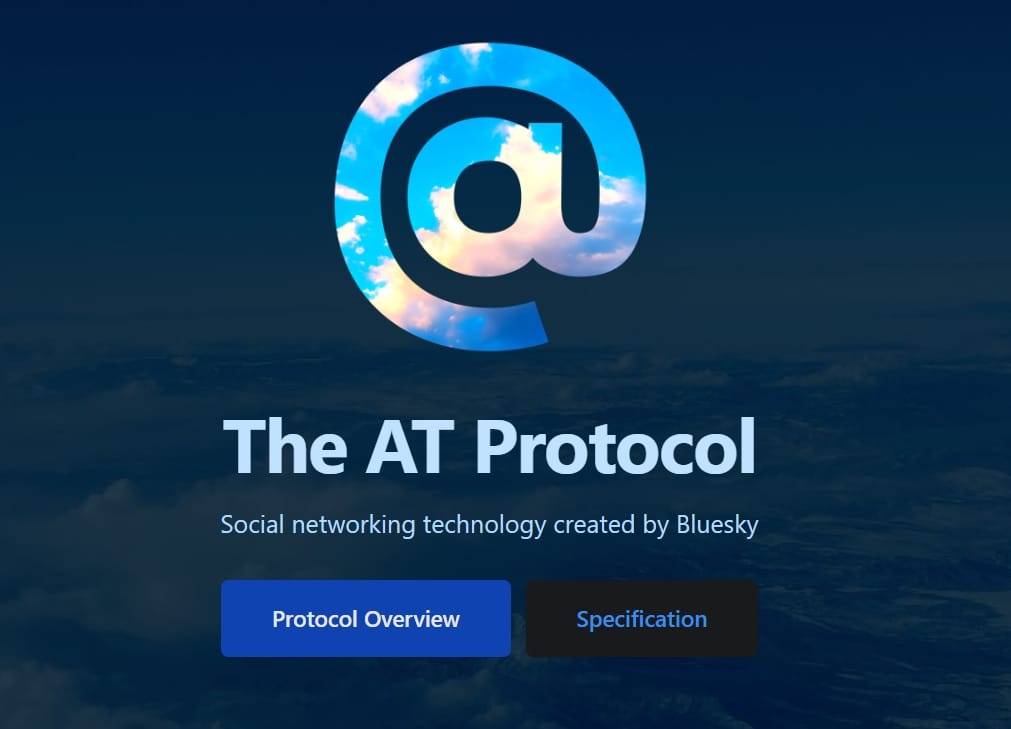
They also want the standard to be compatible with Mastodon's ActivityPub protocol, which would allow them to interconnect. To get all the technical bits of the protocol, you can refer to the documentation.
Mastodon is a free and open-source software based on the federated ActivityPub protocol.
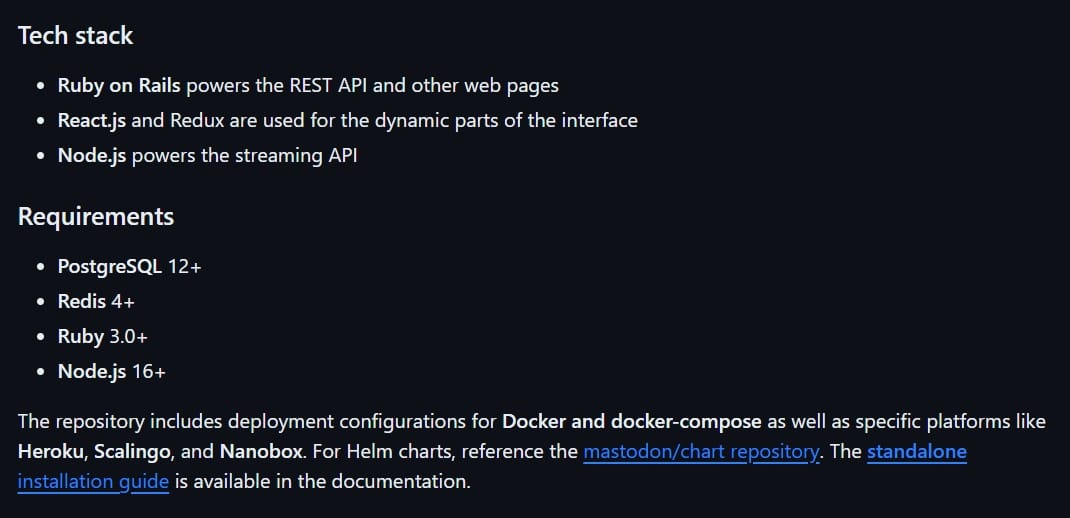
Unlike Bluesky, you can self-host it without any restrictions, and spin up a new Mastodon instance as per your requirements. Follow its documentation to know more.
Even though ActivityPub protocol does not feature "account portability", more types of social media platforms support it. And, any site who uses it, will be available in the federated network.
Corporate vs Non-Profit

Unfortunately, Bluesky is a corporate-backed product. And, we know what happened to Twitter 🤦♂️
Sure, they have made it open-source, and could soon let you host your Bluesky instance like Mastodon seamlessly. Until that happens, Bluesky is a controlled entity with Jack Dorsey as one of the board members.
Even if they complete their federation network and let you self-host an instance easily, Bluesky as the primary platform can have advertisements and other monetization strategies.
The Mastodon project is a non-profit German-based company. Unlike Bluesky, the development is crowdfunded, and does not rely on a couple of investors.
Numerous companies donate to Mastodon, along with users through Patreon.
The official Mastodon platform does not need to entertain any kind of monetization strategy with advertisements.
The Target Users
While they both set out to provide a decentralized platform, not everyone is a fan.
Some people do not like Mastodon, and some do not like the idea of Bluesky. It is only fair, everyone has their preferences. For some, it could be the user experience, and for others it could be the demographics of users they interact with.
Bluesky gives a Twitter-like layout, and it does not feel fundamentally different.
So, anyone who is comfortable with the idea of a similar UI, and confident about a platform backed by Jack Dorsey, can give Bluesky a try.
However, if you want a change, and a community-powered platform, Mastodon is the better choice for you.
User Experience
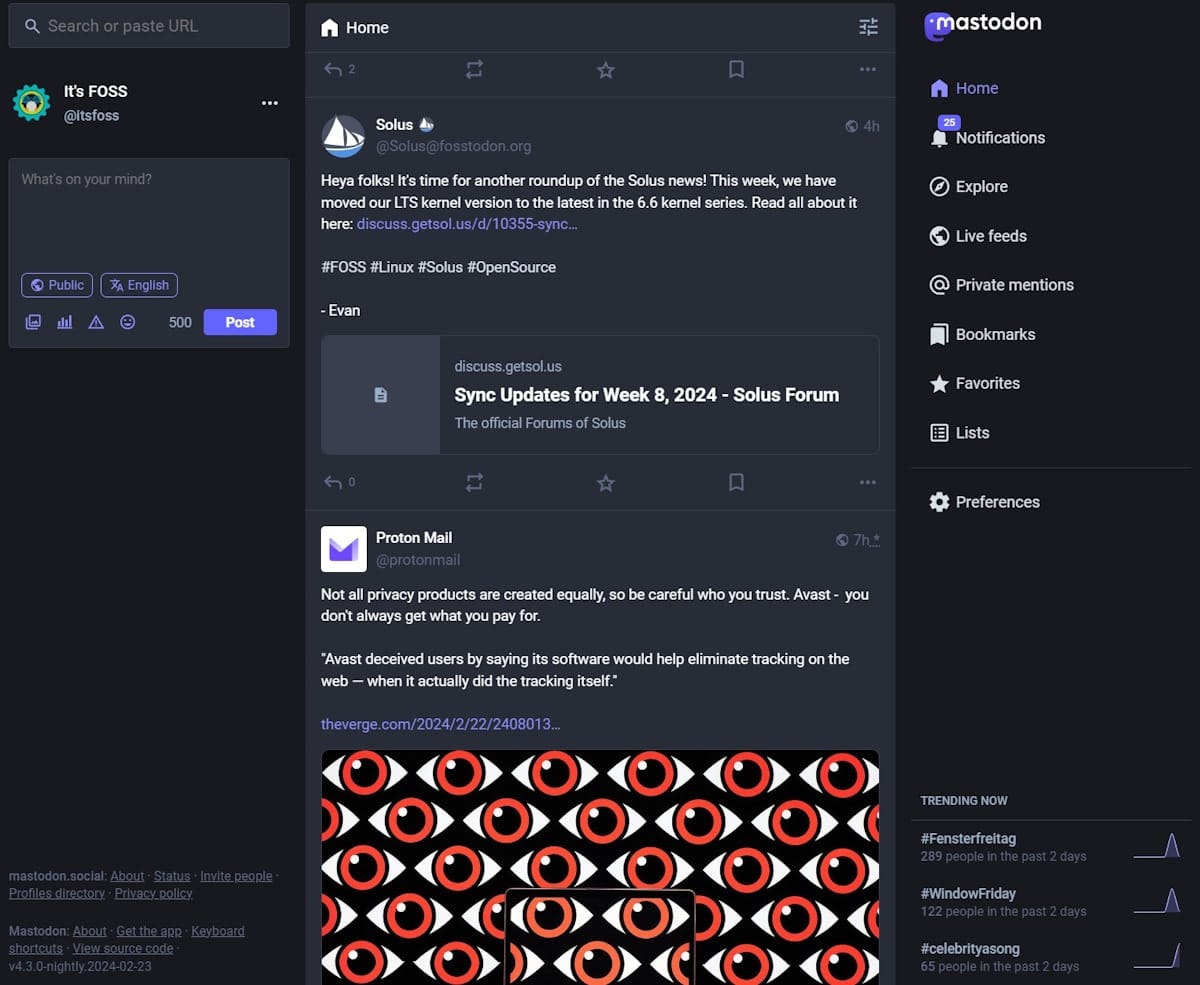
It is no surprise that Mastodon offers a mature user experience.
Mastodon has been around for longer, and has been evolving with the community requirements pretty well.
No special algorithm dictates what you see in the feed meant for the public. If a post has a higher engagement (likes+reshares), you will be more likely to see it first.
Of course, for your feed, posts by the people you follow should show up chronologically. Not to forget, the social media experience will vary depending on the Mastodon instance you signed up on.
Some instances (servers) have more active users, with posts that you might like better.
The user interface presents similar interaction buttons to X, yet feels different, which is a good thing. Not to forget, you get dark/light modes to tweak from the settings.
Moreover, the moderation is managed by the humans responsible for a particular instance. So, like every human being, you can choose to stay with the ones who agree with your thoughts and idealogies.
Bluesky tries to mimic the Twitter experience as closely as possible.
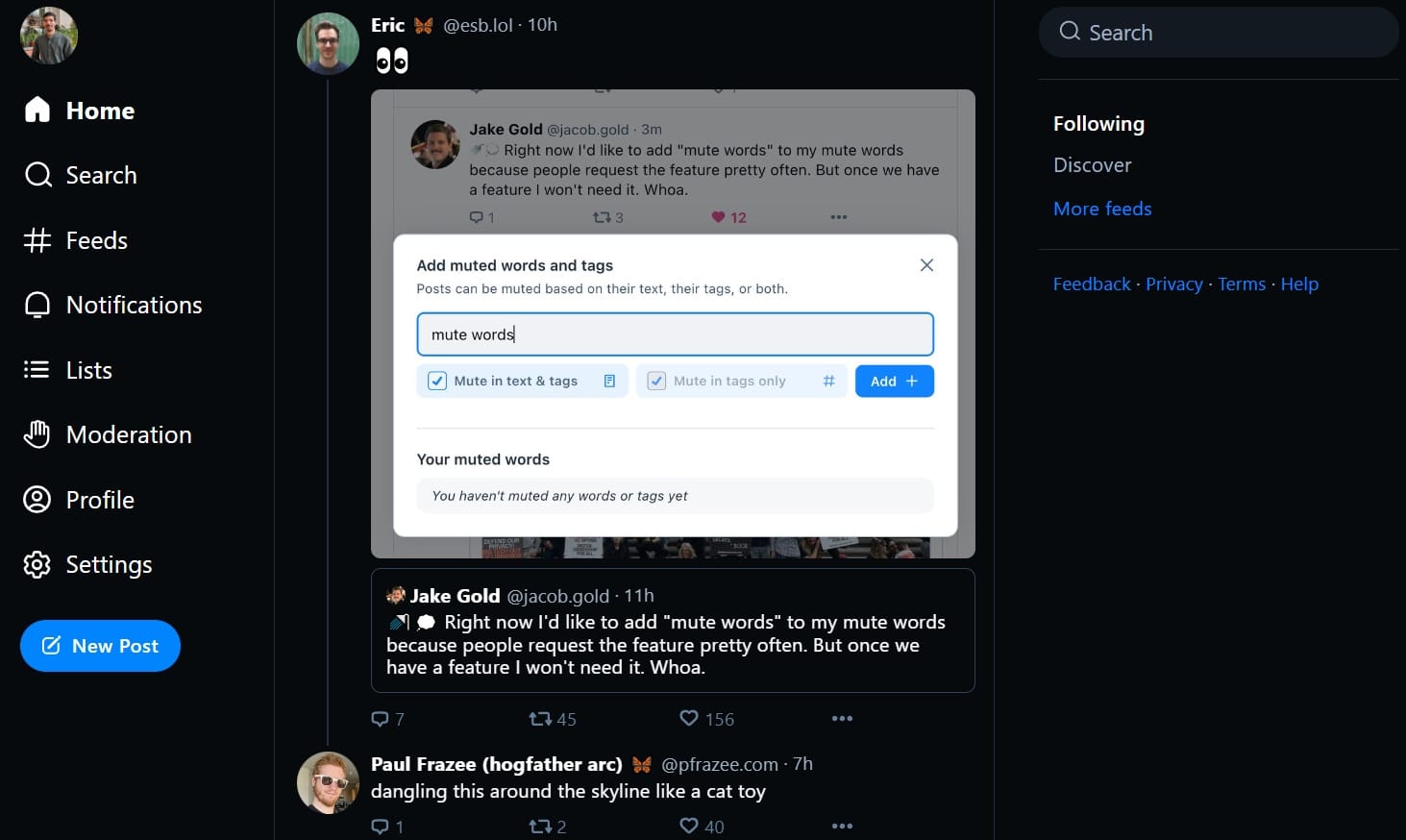
The user interface, the layout, everything should make you feel right at home as a Twitter user.
It gives you the option to choose an algorithm (feed) to follow as per your requirements. You can limit your feed to the people you follow (seeing every interaction with them) or pick a custom feed that learns what you like.
If you are looking for the federated network, and hosting your data, it is possible with Bluesky, but it's a work-in-progress at the moment. So, you need to explore their documentation to make it happen.
The moderation is automated, which is not the best way to go.
Privacy
You can sign up on both the platforms without needing to share your phone number. So, that's an edge over any other social media network that requires it.
What about how they handle your data and the way you share/control information access?
Let me highlight more about them, starting with Mastodon's privacy features:
You can push public posts or posts limited to your followers, and interact with a particular follower using private mentions.
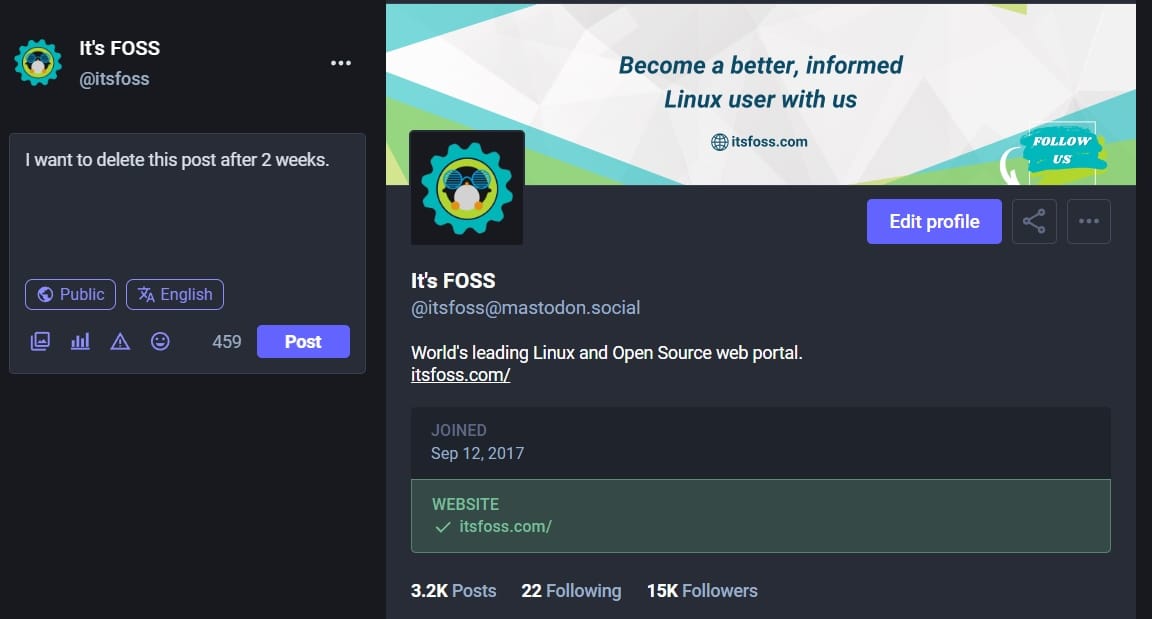
For your data, you can request an archive and export it in an ActivityPub compatible format. You can also easily move your data to another instance or migrate the account to another handle (with some limitations).
The privacy policy for Mastodon as a software is simple and easy-to-understand.
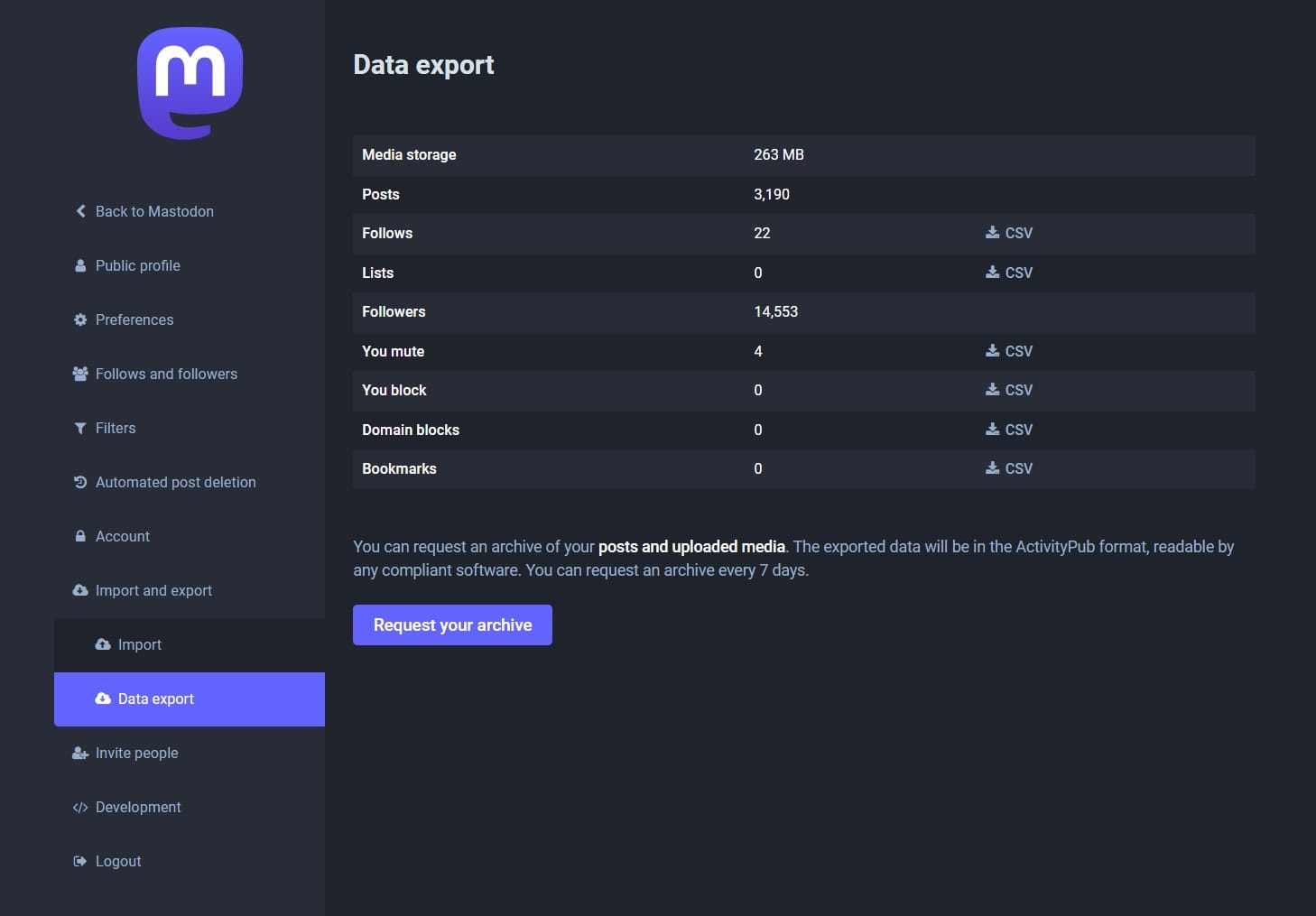
Mastodon also offers 2FA. So, you can secure your account in any instance. While you cannot make your account private, you can set up posts to automatically delete, and get the ability to approve followers.
With Bluesky, you get a feature to make your account private for users who aren't logged in. However, the data will remain public to any other server connected to the network.
The data export option is in its beta phase. So, it is tricky to get all your data downloaded at once.
Moreover, no two-factor authentication method is available with Bluesky, and this could be a bummer for most.
When it comes to the privacy policy, Bluesky does clarify it that they may use your personal information for marketing/research and with third-party services. That being said, it is not a good privacy policy for web service in 2024.
💬 What are your thoughts on Bluesky versus Mastodon? Let me know in the comments below.

